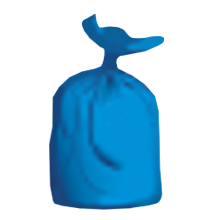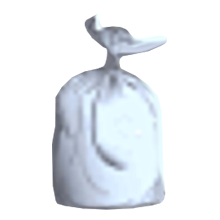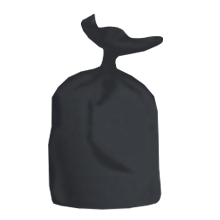The summary report of an independent review of specialist secondary care Mental Health Services has been released today (29 November 2021).
The author, Mr David Gedze, commented that Guernsey has good mental health services, which in many ways are as good as or better than those in most countries in the world. The services are well resourced, providing a wide range of clinical interventions to meet the needs of the population. There are very low waiting times, a sufficient number of in-patient beds and a focus on the physical health and wellbeing of patients.
As with any review, Mr Gedze made recommendations to build on the strengths of the existing structure and noted that a number of small changes could improve the service and the perception of the services, as a means of improving the efficiency and effectiveness of care delivery.
The 2018 review proposed:
- A robust management and professional leadership structure to strengthen the identity of the service and improve external communication
- A single community team to streamline pathways and reduce duplication
- A wider range of interventions in the adult in-patient ward
- Minimal changes to improve services in CAMHS and for people with eating disorders and substance use problems
- The introduction of personal health budgets and peer support workers in line with best practice in modern mental health services
- A new approach to quality improvement, engaging staff and service users
- A link with a UK mental health trust to provide mutual benefits
- A creative recruitment and retention strategy with regular campaigns and rotation posts
Steps have been taken to progress the detailed recommendations of the review and a summary of the key actions taken to date has also been made available by the Committee for Health & Social Care. The documents can be downloaded from this page.
Mental Health Services Overview
Mental Health Specialist Secondary Care Services
- The Mental Health Secondary Care Services provides specialist care to individuals who are experiencing mental ill health. This may either be as an in-patient user, an outpatient user or in the community. Anyone referred must meet the threshold to be admitted into secondary care treatment programmes.
- Broadly speaking this is a positive development, as it indicates that there has been a reduction in the stigma surrounding this issue.
- However, it is important that we have a shared understanding of the phrase "Mental Health", to avoid talking at cross purposes about such an important subject. All too often the phrases Mental Health and Mental Illness are used interchangeably which is inaccurate and undermines any useful discussion.
- Mental Health is the emotional and spiritual resilience which enables us to enjoy life and to survive pain, disappointment and sadness. It is a positive sense of well-being and an underlying belief in our own, and other's dignity and worth.
- Just as every individual has physical health, they also all have mental health.
- It is best thought of as a continuum as below:
- Treating Mental and Physical Health with parity, not every individual with physical health issues requires specialist treatment; the same is the case with mental health issues.
- For those who have significant mental illness, 2 recent independent reviews of Guernsey's services have agreed that the standard of service provision is as high here as anywhere in the UK, albeit with fewer specialist services due to the size of the service and population.
- It would be more accurate to replace the phrase "Mental Health" with wellbeing, as this is a better descriptor of what is meant when the majority of people use this phrase.
- It can be more easily conceptualised that wellbeing is affected by every aspect of one's life and if we wish to optimise the wellbeing of the Guernsey population, this is the shared responsibility of every individual and organisation which forms part of our community.
- From the way in which we treat our friends and family, the way that we educate our children and police our island, to the highest level of decision making from our States Assembly and Political committees, these all impact upon the lives of islanders and therefore the wellbeing of our population.
- How do we address health and financial inequalities, reduce child poverty, work with vulnerable families to prevent intergenerational issues and revolving door recidivist offenders? These are just some of the issues which will improve the wellbeing of the population.
- This is not an issue solely for our health service, but for the community at every level to work towards.
The Administration and Support Team
- The Admin Team, who provide administrative assistance to Oberlands Centre and CAMHS, is made up of eleven Personal Assistants who provide administrative support to clinicians / practitioners by arranging and minuting meetings, dealing with queries both face to face and by telephone of service users / relatives / members of the public, liaising with outside agencies (i.e. Police, Social Security etc.) entering and outcoming clients on TRAK, diary management and coordinating clinics.
- The Personal Assistants are supported by three Admin Assistants / Receptionists who assist with photocopying, sending and uploading correspondence to patient records, faxing prescriptions, copying, posting and uploading appointment cards, answering and forwarding telephone calls, meeting and greeting service users / relatives / members of the public to the unit, ordering stationery / water, writing sick notes as well as any other admin tasks required.
- Two typists (one part-time and one full-time) transcribe correspondence into letter format as well as receiving emails from clinicians, which also requires transcribing.
- There is also a ward clerk based on Crevichon who assists with filing, photocopying, updating patient records, organising specific times for relatives to attend ward round as well as any other admin duties, as required.
- As well as the above, the Mental Health Law Administrator is also based at Oberlands who provides information to service user regarding their rights / procedures who are detained under the Guernsey Mental Health Law Act 2010.
Professional Development and Training
- Mental Health Services have two practice development leads (PDL) and one mental health trainer who facilitate sustainable change and development throughout the service. The leads and trainer have extensive clinical expertise and credibility, experience and knowledge of working in a variety of mental health settings both in Guernsey and across the UK.
- The team aim to mentor, coach and role model person centred care and facilitate reflective practice across professionals as part of continuing education and professional development. The practice development leads support learners across variety of educational pathways including care certificate, national vocational qualifications, undergraduate and post graduate whilst developing and delivering local in-house training.
- In addition, the PDLs ensure that clinical interventions are NICE recommended and support the implementation of these into clinical areas, this includes STORM (suicide prevention training), Management of Violence and Aggression (Breakaway, PMVA) and Dementia awareness (multiple tiers) training. The PDLs in consultation and collaboration with Head of Service contribute and lead on designated work streams relevant to the development of the service, such as policy, review and audit of safety and quality initiatives.
The Older Adult Community Mental Health Team (OA-CMHT)
- The team is multi-disciplinary and includes a Team manager, Consultant Psychiatrist, Associate Specialist Psychiatrists, Community Mental Health Nurses, Occupational Therapists, Approved Social Worker, Support Workers and a team PA and are based at Oberlands. Referrals are accepted primarily from GP's. The OA-CMHT offer person-centred assessment, treatment, care planning and ongoing management of mental health conditions for people primarily aged over the age of 75 yrs. in the community. However, people under this age where dementia is the presenting problem will be accepted for referral.
- The core focus of the team is primarily organic problems i.e. dementia who tend to follow a clinical diagnostic pathway via Memory Clinic. Following diagnosis, the team link closely with 3rd sector groups such as Guernsey Alzheimer's Association & Society for ongoing support. Older people with functional mental health problems for example depression, psychosis, bipolar affective disorder and anxiety are also supported.
- Some people require specialist treatment for acute & complex mental disorders and may need assessment in Tautenay ward.
- The team works closely with other statutory services, particularly Social Care and Community Services, as well as with voluntary sector groups and supporting the private care home sector also.
Tautenay
- The Ward is an Acute Ward for Older Adults (usually aged 75+) who are admitted for assessment of their Mental Health both informally and formally under the Mental Health Act.
- Persons are admitted for assessment of both Functional and/or Organic illness and the Ward is mixed - accepting both male and female Service user.
- Tautenay is an eight bedded Ward, it has two lounges and a communal dining area and an activity room. The Ward has its own kitchen and clinic rooms. Each bedroom is ensuite and has a "wet room" toilet and shower. There are overhead hoist facilities built into several rooms.
- The Team is comprised of a Consultant Psychiatrist, and two supporting Psychiatrists, a Ward Manager and a Deputy Ward Manager. In addition, the Ward has Band 6 and 5 Registered Nurses and Band 3 Healthcare Support Workers.
- The Ward is staffed 24 hours a day, 7 days a week and is open every day of the year. Staff to Service user ratios are high due to the complexity of the service users and there is at least one Registered Nurse on each shift.
Brehon ward
- Brehon Ward is a 20-bedded unit, offering 24-hour specialist medical nursing and mental health care to meet the complex needs of service users who have a dual diagnosis of long-term physical and mental ill health. The multi-disciplinary team specialise in meeting all care needs, including palliative care needs, of frail older adults. Brehon Ward usually provides care to service user who are aged 65 and above.
- For an individual to reside on Brehon Ward, they have to have been assessed by the Needs Assessment Panel as needing specialist hospital level care. This is the highest, most specialised level long-term care available on island, and usually individuals have trialled living in community care homes, but due to the nature of their conditions, their needs have not been able to be met.
- We have dual consultancy for the ward - Consultant Psychogeriatrician Dr Lucy Watkins, and Consultant Medical Geriatrician Dr Aneurin 'Nye' Matthew. Additional medical care on Brehon is provided by the service users own GP's. The ward staff work closely with the service users, their families and other health care professionals, to ensure care delivered is person centred and evidence based.
Roustel and Corbiere
- Roustel Ward and Corbiere are 20 bed older adult wards for people living with dementia and displaying behaviours that challenge. Their mental health needs are over and above those that can be managed within community care homes on the island.
- The nursing team works closely with the Older Adult Consultant Psychiatrist, Dr Watkin and her Associate Specialist to try to address and reduce these needs so that they can be managed in the community. Service users are reviewed each month and their need to stay on the ward is considered. The nursing team is supported by an activity coordinator whose role is to actively engage our service users and provide cognitive stimulation. Roustel ward has recently purchased a Tovertafal (dementia interactive 'magic table') through charity funding and the Little Extras Charity have approved funding for Singing for the brain sessions to be held on the ward every other week.
Willows
- The Willows is a Day Care facility based at Nouvelle Mariataine complex, open Monday to Friday 8am to 4pm and provide maximum of 20 places each day. The Willows is a specialist service, maximizing well-being and opportunities for older people living with physical illness, Dementia and mental illness, whilst ensuring respect, dignity and choice are given. The service provides therapeutic activities to enhance well-being, reduce isolation, monitor mental and physical health and provide carer respite. Treatment programmes and care plans are developed in partnership with the service user and/or carers and focus on maximising the person's retention of skills.
- The Willows Day Centre team is multi-disciplinary, facilitated by both Registered and Unregistered Health Care Professionals. We work closely with both community and in-service user services, aiming to provide a seamless service with continuity of care. A bus service is available to transport people to and from the Willows should they have no other way of being able to attend. A bathing service is run from the Day Centre and provides support for people to have a bath using assisted bathroom at the Nouvelle Maritaine complex, or in their own home. The Day Centre bathing service requires people to have/arrange their own transport.
Recovery and Wellbeing Service
- The Recovery & Wellbeing service (R&Ws) use a Recovery model that is person centred to enable people to maintain and develop living skills in regard to managing their mental health. It offers hospital and community-based group sessions and face to face evidenced based interventions.
- The two main tools for this approach are:
- 1. The Recovery Star
- Managing Mental Health
- Self-Care
- Living Skills
- Social Networks
- Work
- Relationships
- Well-being
- Medication Management
- Addictive behaviour
- Responsibilities
- Identity and Self-esteem
- Trust and hope
- 2. The Wellness Recovery Action Plan (WRAP)
- The Wellness Recovery Action Plan is a framework with which service users can develop an effective approach to managing their recovery. This includes developing tools to identify triggers, how to overcome distressing symptoms and the promotion of wellness.
- Interventions for the in-patient and acute presentation service user
- 1. 1:1 session to plan and review care plans
- 2. 1:1 session to support in times of distress
- 3. Group Sessions
- a. Recovery Group
- b. WRAP group
- c. Decider Skills
- d. Mindfulness
- e. Move group
- f. Art/Crafts/Pottery
- g. Quitline
- h. Health Promotion
- Interventions for the enduring presentation service users
- 1. 1:1 sessions to plan and review care plans
- 2. 1:1 sessions to support in times of distress
- 3. Health Promotion sessions
- a. 1:1 Consultations
- b. Drop-in Clinics - Health Promotion
- c. Quitline
- d. Health Promotion
- 4. Group sessions
- a. Horizons drop-in group
- b. Mindfulness
- c. Art/pottery sessions
- d. Badminton
- e. Weaving craft group
- f. Swimming
Crevichon
- Crevichon ward is a 17 bedded mixed sex ward providing care for people who are in crisis who cannot live safely in their home environment. Service user admitted are aged between 16 and 75 years. The ward is staffed by both registered and unregistered staff led by the ward manager and deputy ward manager. The medical team are led by a Consultant Psychiatrist and there is an associate specialist based on the ward. Out of hours the ward is supported by a duty doctor and senior member of the nursing team.
- The ward caters for people with a wide variety of problems, including diagnosed mental illnesses and those requiring assessment of their mental health.
- People also come to the ward with alcohol and substance misuse problems and they are directed towards the appropriate services to address these problems on discharge.
- The ward is recovery focused and work collaboratively with service users to work towards their discharge. The ward provides daily activities supported by an activity coordinator and works closely with community-based teams to ensure continuity of the service user's journey back home after a stay on the ward.
Duty and Intervention team
- The team are responsible for the seven day follow up of appropriate clients following discharges from Crevichon ward, and close follow up with early discharges. To aid this they attend ward rounds and discharge planning, all discharges are now followed up by duty unless they are open to Recovery & Rehabilitation. These service users are under the remit of duty and not open to Doctors.
- There has also been an increase from the medical wards for psychiatric assessments as well as Capacity assessments. The team also undertake short term work with psychiatrists not associated with the team for risky or unwell clients.
- Duty cover Multi Agency Support Hub (MASH) on a weekly basis and involved with investigations when appropriate and also involved in Multi Agency Risk Assessment Conference (MARAC). In addition, the team are involved in Education sessions on Mental Health Legislation and teaching introduction to Brief solution focused approach.
- Currently the team are running a zoning system which is for the most at-risk service users to ensure that risk is shared within the team rather than individual approach.
- Service users are prioritised with major mental illness associated with risk. The criteria are as follows:
- High Risk. Self-harm, harm to others, suicide.
- Recently discharged from Crevichon.
- Under mental health law
- A history of violence.
- Psychotic symptoms.
- Manic episode.
- Recent ED assessment. Overdose/suicide attempt.
- Medication change.
- Unknown patient.
- Red zone: Service users who are at high risk and have a high level of need and are currently in crisis, maybe likely to require admission without further support and require frequent review and intensive support and/or changes to care plans and crisis plans.
- The duty and Intervention team collate and triage all GP referrals; the majority will be dealt with by this team. Referrals that are more appropriate for Psychological Therapy/Recovery and Wellbeing Service or psychiatrists will go through to the weekly intake meeting which determines if a referral meets the specialist mental health service thresholds for admission. Those referrals that do not meet these thresholds will be referred back to the General Practitioner
- Green Zone: Routine work for clients not at risk, who are in our Green zone (No Risk, moving towards discharge) cannot be guaranteed to be seen on a regular basis.
Recovery and Rehabilitation Team
- The Recovery and Rehabilitation team is a community mental health team which looks after service user with severe and enduring mental illness in their own homes or in an HSC community homes of which there are currently three. The Recovery Model is what we aspire to and the team is very service user focused and work collaboratively with service user and various teams within HSC and government departments.
- The team supports service user to live as normal life as possible, this includes, but not limited to, supporting with daily tasks such as paying rent, shopping, attending out-service user appointments and at times helping with medication and administering depot medication.
- Registered staff will also involve service user in various treatments such as CBT and EMDR to name but a few.
- The benefit the team brings to HSC is that it prevents hospital admissions. Service user are more relaxed and less intimidated working in an environment in which they are comfortable in. The team has nine registered nurses, twelve health care assistants, two occupational therapists.
Psychological therapy team
- The Psychological Therapies Team offers psychological services to those with severe and enduring mental illness with associated risk and complexity where there is capacity for meaningful engagement and change. Psychological services are available to anyone who meets this secondary care threshold including HSC employees.
- Services delivered include assessment and psychotherapy offered on an individual or couple basis which may occur on an outservice user, inservice user or within the prison setting.
- Consultation is routinely provided to teams across mental health. On request stakeholders across the wider health and prison systems are provided with psychological formulation and consultation.
Community Drug & Alcohol Team (CDAT)
- The Community Drug & Alcohol Team provides treatment to individuals experiencing problems associated with their drug and alcohol use and works with people over the age of 18 offering a specialist service based on the current Bailiwick Drug and Alcohol Strategy 2015-2020. A structured treatment is provided to approximately 160 individuals. Treatment is available to anyone with significant drug and/or alcohol use, where there is a related risk to themselves or others and there is evidence of a commitment to actively engage in treatment.
- The main source of referrals to the service is primary care, but referrals are accepted from other statutory or voluntary agencies: probation, prison, emergency department, social services, and third sector organisations (Independence, GAAS).
- Our approach to substance use is based on the belief that people have potential to change their lifestyles and improve their quality of life. The service provision includes a variety of interventions: opioid substitute treatment, alcohol detoxification, psychosocial interventions/counselling, physical health checks and onward referrals to specialist services. Considerable part of our engagement with service users is based on a harm reduction approach which includes working towards abstinence.
Child and adolescent Mental Health (CAMHS)
- CAMHS is a specialist mental health service that assesses and treats young people (age 18 and under) with mental health difficulties such as anxiety, depression and low mood, self-harm, psychosis and difficulties with food, to name just a few. CAMHS support also covers neurological disorders such as ADHD (Attention Deficit Hyperactivity Disorder) and associated co-morbid difficulties such as tics and autism.
- The CAMHS team is multi-disciplinary with nurses, psychiatrists, family therapists, social workers and psychological wellbeing practitioners we also have administrative support for the team. CAMHS offer different types of help for young people and their families. You may sit and talk, complete practical activities, questionnaires, answer some questions or be given some puzzles to solve.
- CAMHS offer a wide range of therapies and interventions such as Family therapy, Cognitive Behavioural Therapy (CBT), Interpersonal Therapy (IPT), Dialectical Behavioural Therapy (DBT), Eye Movement Desensitisation and Reprocessing (EMDR), Parenting Support and medication management.
St Julian's
- St Julian's House is unique facility to Guernsey offering accommodation for service users that through various reasons have unexpectedly found themselves with no fixed abode. Situated in the heart of St Peter Port, St Julian's is an imposing building overlooking St Julian's Avenue with stunning outward views of all the neighbouring islands. St Julian's House currently houses twenty male residents over two floors as well as six female residents on the upper floor. In addition to this there are two rooms within the house specifically used for substance/alcohol misuse detoxification.
- The house is staffed by eight support workers all of whom are passionate about the important role they hold; the team includes a full-time chef and housekeeper and is managed by a registered nurse. The range of service users is wide and varies from those who have become homeless, whether through substance misuse, release from prison, mental health issues, and transition from adolescence to adulthood or relationship breakdown. During their stay at the house service users are actively encouraged and assisted by staff to secure employment and return to a societal environment.
- Every service user is assigned a key worker with whom regular meetings are held, whilst the key workers role is to assist service users in day to day tasks these meetings are a chance for service users to confide and relay any concerns they may have. St Julian's is proud of its record of returning service users back to their own accommodation, families and employment.














